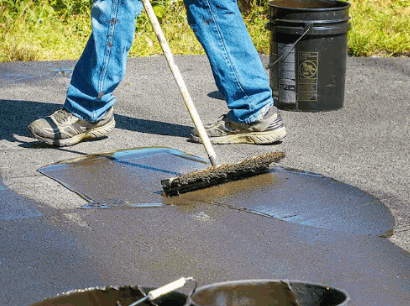Resin driveways are a stunning and durable choice for enhancing your property's curb appeal, but like any surface, they require regular cleaning and driveway maintenance to keep them looking their best.
This article explores what a resin driveway is, why routine cleaning is essential, and the tools needed for effective resin driveway cleaning and maintenance.
It also provides a step-by-step guide through the cleaning process and shares valuable tips to ensure your driveway stays pristine for years.
Read on to discover how easy it is to care for your investment and maintain a pristine resin bonded surface!
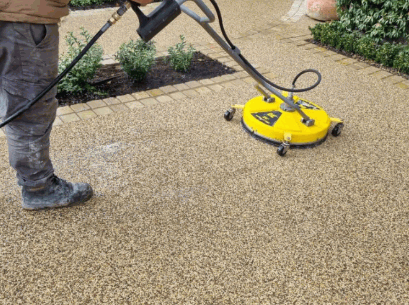
What Is A Resin Driveway?
A resin driveway, specifically a resin bound driveway, is a visually appealing and durable surface designed to enhance the aesthetic and functional qualities of domestic properties in the UK, particularly in areas like Doncaster and Sheffield, making it a popular choice for homeowners looking for effective driveway maintenance. This driveway type combines a mixture of aggregate with a resin binder to create a robust, permeable surface that allows water to drain through while offering a stunning finish that complements various property styles. Additionally, the use of DALTEX UVR Resin ensures longevity and resistance against fading and wear, while also providing essential UV protection solution for the driveway.
Find out more: How Is A Resin Driveway Installed

Why Is It Important To Clean A Resin Driveway?
Cleaning a resin driveway is essential to maintain its visual appeal and structural integrity, as neglecting this aspect can lead to issues such as moss growth, weed growth, and staining from oil spillage or vehicle leaks. Regular cleaning prevents these problems, prolongs the driveway's lifespan, and ensures that the resin bound surface remains attractive and functional, providing not only a safe space for vehicles but also enhancing the overall curb appeal of your home, free from issues such as moss growth and oil spillage.
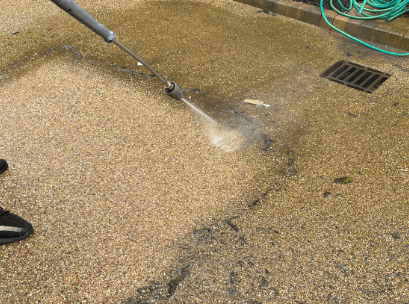
What Are The Tools Needed To Clean A Resin Driveway?
To effectively clean a resin driveway, a range of essential tools is required, including a pressure washer for deep cleaning, a stiff broom for debris removal, and a garden hose to rinse the surface, alongside a bucket for mixing cleaning solutions. Additionally, a bucket and scrub brush are useful for applying a cleaning solution, such as warm soapy water or specialized bleach solutions designed for resin driveway cleaning, ensuring that all contaminants like moss and algae are thoroughly addressed.
Pressure Washer
A pressure washer is a powerful tool that utilizes high pressure water to deeply clean a resin driveway, effectively removing stubborn stains, moss, oil, and weed growth that traditional cleaning methods may not eliminate.
This efficient cleaning method not only saves time but also provides exceptional results, revealing the driveway's original beauty, especially when using a domestic jet washer or professional services.
To achieve the best outcome, it is crucial to use the right pressure settings—generally recommended around 1,500 to 2,500 PSI for resin driveways, ensuring a balance between effectiveness and safety during jet washing.
- Always start with the lowest pressure setting and gradually increase if necessary.
- Maintain a consistent distance of about 12 inches from the surface to avoid damage.
- Protect surrounding plants and surfaces by covering them with plastic sheeting.
By following these practices, users can harness the power of a pressure washer while safeguarding the integrity of their resin surfaces.
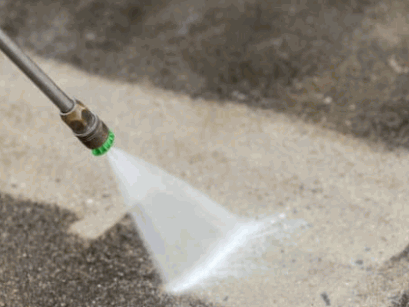
Stiff Broom
A stiff broom is an essential tool for cleaning a resin driveway, designed to effectively remove debris, leaves, and dirt that accumulate on the surface.
Taking a moment to properly utilize this sturdy cleaner sets the stage for maintaining the driveway’s aesthetic appeal and longevity. Using a stiff broom not only clears away visible litter but also minimizes the risk of dirt buildup and organic growth, which often leads to more serious cleaning challenges down the line. To achieve the best results, consider these sweeping techniques:
- Begin at one corner and work your way systematically across the entire surface, ensuring no patches are missed.
- Use long, even strokes to efficiently lift dirt and leaves, allowing them to collect in a pile for easy removal.
- Pay special attention to edges and corners where debris tends to accumulate, as these areas are often overlooked.
By following these methods, one can not only enhance the cleanliness of the driveway but also reduce the need for more intensive cleaning later.
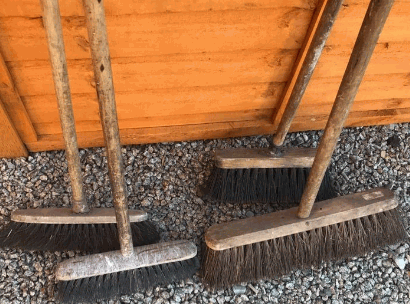
Garden Hose
A garden hose is a crucial tool for rinsing your resin driveway after applying a cleaning solution, ensuring that all dirt, grime, and cleaning agents are adequately washed away.
When tackling tough stains, employing a garden hose not only simplifies the rinsing process, but also ensures thorough removal of any residues from cleaning solutions, including bleach solution or washing up liquid.
Here are some effective tips for using a hose in this cleaning task:
- Start from the highest point: This allows the water to flow downwards, helping to carry away dirt more effectively.
- Use a spray nozzle: Adjusting the nozzle to a fan spray setting can provide broader coverage, making it easier to rinse large areas.
- Work in sections: Divide the driveway into manageable parts, rinsing each section thoroughly before moving on; this guarantees complete and even coverage.
Following these tips can maximize the effectiveness of a garden hose, leading to a cleaner and more vibrant driveway.
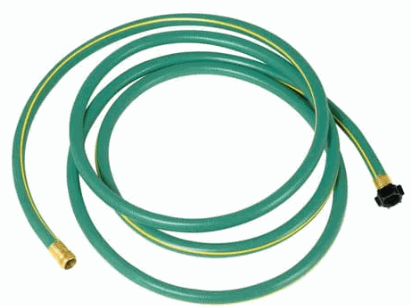
Bucket
A bucket is an critical tool for mixing and holding your cleaning solution, such as warm soapy water, which helps in loosening dirt and grime on the resin driveway, making the cleaning process more efficient.
Utilizing a bucket not only simplifies the process but also allows for better control over the amount of solution used, preventing excess use of chemicals. When preparing the cleaning mix, fill the bucket with warm water and add an appropriate detergent, ensuring it is well blended. This combination effectively tackles tough residues without being overly abrasive.
- Using warm water enhances the solution’s ability to activate the detergent, providing a deeper clean.
- To maintain cleanliness, keep a separate bucket for rinsing to prevent contamination of your solution, ensuring effective algae removal.
- Always wash out the bucket after use to avoid the buildup of dirt and grime.
By following these tips, one can maximize the cleaning benefits of warm soapy water while maintaining a hygienic cleaning environment.
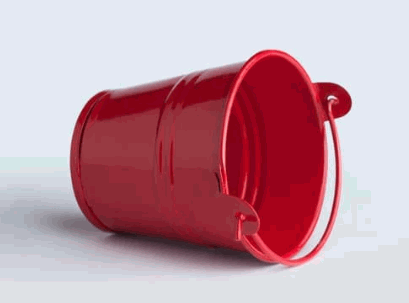
Scrub Brush
A scrub brush is essential for the deep cleaning of a resin driveway, particularly for removing tough stains and organic growth like algae that may resist simple rinsing. A well-chosen scrub brush not only enhances the cleaning process but also ensures the integrity of the driveway surface is maintained, which is crucial for longevity and aesthetics.
When selecting a scrub brush, consider these types of brushes that complement your cleaning regimen:
- Soft-Bristle Brushes: Ideal for delicate surfaces, these brushes effectively remove dirt without scratching the resin.
- Medium-Bristle Brushes: Perfect for general cleaning tasks, allowing for a balance between scrubbing power and surface protection.
- Stiff-Bristle Brushes: These should be used sparingly; while they can tackle tough stains, they risk damaging the resin if used improperly.
To scrub the surface effectively, start by soaking the area with water and a compatible cleaning solution. Use gentle, circular motions with the brush, applying consistent pressure without overexerting. This technique will help preserve the resin while eliminating embedded dirt and grime.
Remember, selecting the right cleaning solution and method is vital for achieving optimal results without compromising the integrity of the resin driveway.
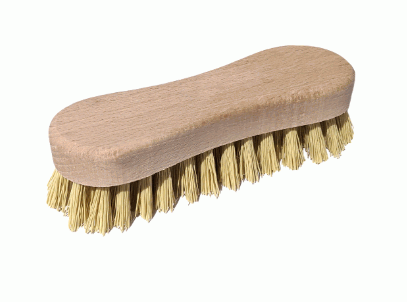
Cleaning Solution
Choosing the right cleaning solution is vital for maintaining a resin driveway, with options ranging from warm soapy water to specialized bleach solutions or herbicides designed to tackle tough stains and organic growth, particularly for algae removal.
Understanding the nuances among these choices can significantly affect the longevity and appearance of the driveway. A variety of cleaning solutions are available, each catering to specific needs:
- Warm Soapy Water: This is a gentle yet effective solution for regular maintenance, helping to remove light dirt and debris.
- Bleach Solutions: Although potent against algae and tough stains, caution is essential; improper use can harm nearby plants or the resin itself.
- Herbicides: Best suited for eliminating stubborn weeds and organic matter, they should only be used with careful adherence to safety guidelines to protect the surrounding environment.
Always prioritize safety by wearing gloves and masks when handling stronger chemicals, such as hydrochloric acid, and ensure that the selected solution is safe for resin surfaces to prevent any unintended damage.
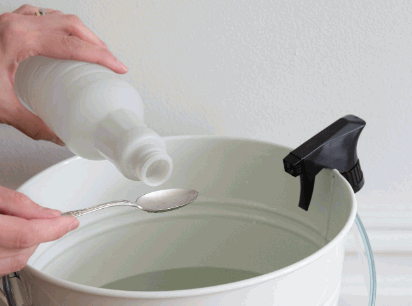
How To Clean A Resin Driveway?
Cleaning a resin driveway involves a series of systematic steps designed to effectively remove debris, stains, and contaminants while preserving the integrity of the resin bonded surface. Start by using a stiff broom to clear away loose debris, followed by pre-treating any stains with an appropriate cleaning solution, such as warm soapy water or a specialized bleach solution. Then, scrub the surface using a scrub brush to loosen any dirt or algae before rinsing thoroughly with a pressure washer or garden hose to ensure the driveway is clean and well-maintained, free from any contaminants.
Remove Debris
The first step in cleaning a resin driveway is to thoroughly remove debris using a stiff broom, ensuring that the surface is free from leaves, dirt, and other organic matter that could cause staining or promote moss growth.
Taking the time to effectively tackle this critical initial step not only enhances the appearance of the driveway but also plays a crucial role in preventing long-term damage. By regularly using a broom or even a leaf blower, the driveway achieves optimal cleanliness and remains appealing throughout the year.
Consistent attention to debris removal prevents the buildup of troublesome substances that could lead to unsightly stains or encourage the growth of unwanted plants. Keeping the driveway clear aids in maintaining good drainage, which is essential for avoiding water pooling that can compromise the structure over time.
- Prevents staining and discoloration
- Reduces the risk of moss and algae formation
- Improves overall aesthetic appeal
- Enhances safety by reducing slip hazards
Such proactive measures ensure that the driveway retains its integrity and charm, making it a joy to use and view.
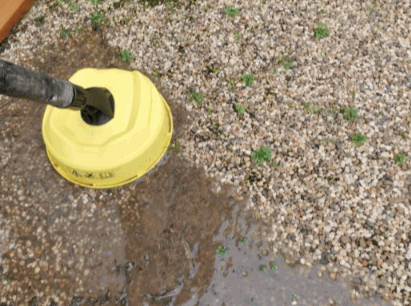
Pre-treat Stains With Aggregate Mix
Pre-treating stains on a resin driveway is crucial for effective cleaning, especially when dealing with surface contaminants like algae or oil spillage, which may require specific solutions such as warm soapy water to loosen their grip.
Identifying stains that necessitate pre-treatment often involves a keen eye; look for discolorations that contrast sharply with the surface.
- Oil stains usually appear as dark spots.
- Algae can present as green patches and is often slippery.
- Rust stains tend to be reddish-brown and can be more stubborn.
Once you’ve pinpointed the stains, applying the cleaning solution is the next step. Lightly saturate the affected area with your chosen cleaner, ensuring it’s evenly distributed. For optimal effectiveness, allow the solution to penetrate for at least 10-15 minutes before scrubbing gently with a soft-bristle brush. This waiting period helps break down the stain’s bond to the resin surface, making removal significantly easier.
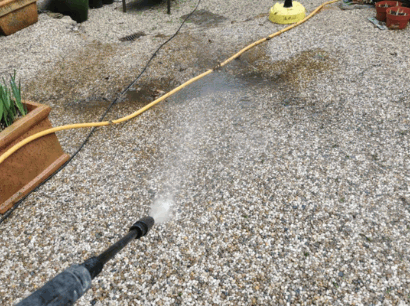
Apply Cleaning Solution And UV Protection Solution
After pre-treating stains, the next step is to apply the chosen cleaning solution—whether it's warm soapy water or a specialized bleach solution—to the entire surface of the resin driveway for a thorough clean.
To effectively carry out this process, begin by pouring the cleaning solution into a bucket, ensuring that you have enough to cover the area you intend to clean.
Using a sturdy scrub brush, dip it into the solution and start applying it to the driveway in sections. It's crucial to maintain even coverage, as this will not only enhance the appearance but also prevent streaks from forming. Pay special attention to particularly stained areas; it may be necessary to apply a bit more pressure or let the cleaner sit for a few minutes.
- Begin from one end of the driveway and systematically move across.
- Rinse the brush regularly to avoid redepositing dirt.
- Always follow the manufacturer's instructions for the cleaning solution to achieve optimal results.
Following these best practices will ensure a clean, rejuvenated surface that looks as good as new.
Scrub And Rinse
After applying the cleaning solution, use a scrub brush to agitate the surface, effectively lifting dirt and stains before rinsing with a garden hose to wash away the residue.
To ensure a thorough cleaning process, it's crucial to exercise proper technique while scrubbing the area. A systematic scrubbing approach will help in dislodging any stubborn dirt particles, ensuring a meticulous clean.
Once the scrubbing is complete, the rinsing phase becomes paramount. Insufficient rinsing can leave behind traces of cleaning solution, which may attract more dirt and, ultimately, defeat the purpose of the effort.
Considerations for effective rinsing include:
- Water Pressure: The force of water significantly influences the efficacy of rinsing. Higher pressure helps dislodge any lingering residue left on the surface.
- Rinse Time: Allocating enough time for rinsing is essential to ensure every nook and cranny is adequately addressed.
- Distance from Surface: Keeping the hose at an appropriate distance will help maintain pressure while allowing for an even rinse.
By paying attention to these details, one can guarantee a cleaner, residue-free surface, ready for use.
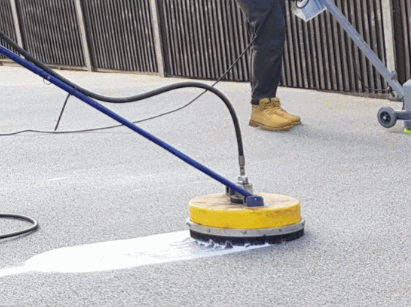
Pressure Wash For Restoration Services
Using a pressure washer at this stage provides a powerful cleaning method, effectively blasting away any remaining contaminants from the resin surface with high pressure water, ensuring that the surface is not just clean but also prepared for any final touches or treatments that may follow. This method is particularly effective for eliminating stubborn residue, such as dirt, grime, and moss, that traditional cleaning techniques may struggle to remove.
One of the significant advantages of using a pressure washer is its ability to reach challenging areas with ease, enhancing the overall effectiveness of the cleaning process. With the right technique, pressure washing guarantees a thorough, deep clean that leaves surfaces looking fresh and revitalized. Safety is paramount when operating this powerful equipment.
- Distance: Always maintain a safe distance from the surface being cleaned to prevent damage.
- Pressure Settings: Adjust the pressure settings appropriately; higher pressures may be necessary for tough stains but can harm delicate surfaces.
- Protective Gear: Wear safety goggles and gloves to protect yourself from flying debris.
By following these safety tips, users can enjoy the benefits of pressure washing while minimizing risks, paving the way for a successful final cleaning step.
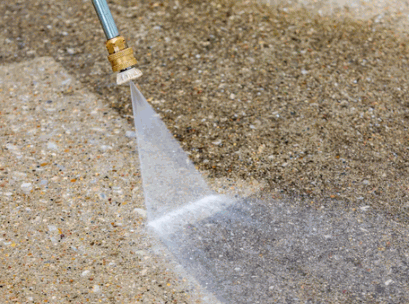
Rinse And Dry With DALTEX UVR Resin
Ensure that the resin driveway is thoroughly rinsed with a garden hose to remove any remaining cleaning solution, followed by allowing it to dry completely to prevent slipping or staining.
The final rinse is more than just a step; it’s a critical phase in maintaining the integrity and aesthetics of a driveway. Thorough rinsing not only eliminates residue but also prepares the surface for optimal care in varying weather conditions. After rinsing, it’s crucial to factor in environmental elements like humidity and temperature, which can significantly affect the drying time.
- On sunny days, the drying process is usually quicker, whereas moist weather may require longer.
- To ensure complete drying, consider choosing a day when the forecast is clear.
Before use, it’s advisable to conduct a simple test: run your hand over the surface to check for moisture. Only when the driveway feels dry to the touch should it be deemed safe for vehicle or foot traffic.
What Are Some Tips For Maintaining A Clean Resin Driveway?
Maintaining a clean resin driveway requires consistent care and attention, focusing on preventive measures to avoid common issues like moss growth, weed growth, and oil spillage which can detract from the driveway's appearance and durability. Regular maintenance practices, combined with timely cleaning, can significantly extend the lifespan of the resin bound surface, ensuring it remains an attractive and functional feature of your property.
Regularly Sweep And Remove Debris
Regularly sweeping your resin driveway is a simple yet effective maintenance practice that helps prevent debris accumulation, which can lead to staining and encourage moss growth.
Ensuring the surface remains clean not only enhances its aesthetic appeal but also extends its lifespan, saving you money in the long run. Homeowners are often advised to sweep their driveways at least once a week, particularly during the fall when leaves can be plentiful.
Taking this simple step keeps your driveway looking pristine and prevents damaging issues from developing later on.
- Effective Techniques: When sweeping, use a broom with stiff bristles for stubborn debris and a dustpan to gather smaller particles efficiently.
- Prompt Action: Addressing spills or falling leaves promptly can prevent stains and blockages that may require more intense cleaning.
Regular maintenance leads to a safer, more attractive space, significantly benefiting your home’s overall appearance and value.
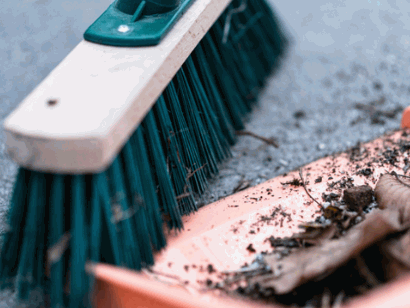
Pre-treat Stains Immediately
It is crucial to pre-treat any stains on your resin driveway immediately, especially those caused by oil spillage or vehicle leaks, to avoid long-term damage and discoloration.
Prompt action is essential because resin surfaces are particularly susceptible to staining. Ignoring spills may lead to permanent discoloration, making future cleaning efforts more difficult.
To effectively manage stains, follow these steps:
- Blot the Stain: Use a soft cloth or paper towel to soak up as much liquid as possible without rubbing it in.
- Choose the Right Cleaner: A specialized resin-safe cleaner or a mild detergent mixed with warm water can be effective.
- Scrub Gently: Apply the cleaning solution with a soft bristle brush, working from the edges of the stain inward to prevent spreading.
- Rinse Thoroughly: Ensure you rinse the area with clean water to remove any residue.
- Dry the Area: Pat the surface with a dry cloth or let it air dry completely.
By acting quickly and following these recommended methods, you’ll help maintain the aesthetic appeal and longevity of the surface.
Use Mild Cleaning Solutions And Snow Shovel
Using mild cleaning solutions, like warm soapy water, is ideal for regular maintenance of a resin driveway, as harsh chemicals can damage the resin and affect its longevity.
Maintaining this type of driveway effectively ensures durability and visual appeal over time. Regular use of gentle cleaners not only preserves the resin’s integrity but also prevents issues like fading or cracking that can arise from more abrasive substances.
Choosing the right cleaning products is crucial to avoid these adversities. It’s recommended to stick to:
- Warm soapy water with a gentle pH balance.
- Natural solutions like vinegar diluted with water, perfect for light stains.
- Baking soda paste for tackling tougher marks without abrasiveness.
For more stubborn stains, consider using specialized resin driveway cleaners available commercially, which are designed to react effectively while remaining gentle. Implementing these techniques will uphold the aesthetic charm and long-lasting qualities of the driveway.
Seal The Driveway
Applying a sealant to your resin driveway provides an additional layer of protection against environmental factors, ensuring that the surface remains resistant to discoloration from UV rays and potential stains.
By effectively repelling water and minimizing the chances of unsightly stains, sealing not only enhances the aesthetic appeal but also extends the lifespan of the driveway. Regular exposure to moisture can lead to wear and tear, yet a quality sealant acts as a barrier, safeguarding your investment. This helps maintain the driveway's integrity over time.
Applying a sealant can:
- Repel harmful substances that could potentially cause damage, such as oil or chemicals
- Reduce the growth of weeds and moss, which can degrade the surface
For optimal results, it is recommended to apply the sealant during dry weather, preferably in spring or early fall, when temperatures are moderate. Make sure to thoroughly clean the driveway and allow it to dry completely before application to ensure a strong bond.
